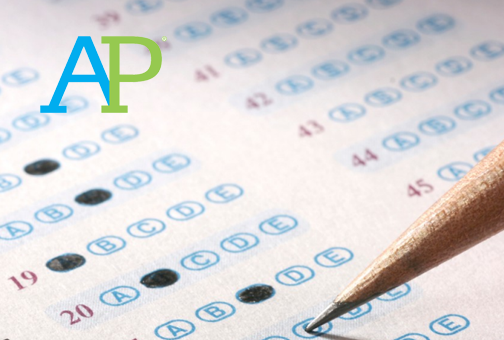Study Finds Boston Charter Students More Likely to Take and Pass AP Tests
Pass rates for African-American, Latino, and economically disadvantaged students also higher than corresponding Boston Public Schools numbers
BOSTON – Boston charter public school students are more likely than their counterparts in non-exam Boston Public Schools (BPS) to take Advanced Placement (AP) courses and tests, and Boston charters have also done a better job of helping traditionally underserved students pass AP tests, according to a new study published by Pioneer Institute.
“Access to AP within the Boston Public Schools is radically skewed toward the system’s three exam schools,” said Dr. Cara Candal, co-author of “Advanced Placement Opportunities and Success in Boston Charter and District Schools: A Demographic Report.” “Unlike charter schools, admission to the exam schools is selective and they are demographically distinct from both Boston charters and the rest of the school district.”
Advanced Placement allows high school students to take college-level courses. If they achieve a passing grade on the corresponding AP tests, they may be eligible to earn college credit.
Dr. Candal and her co-author, Professor Ken Ardon, found that a greater percentage of Boston charter public school 11th and 12th graders take AP tests than do all 11th and 12th grade students enrolled in the Boston Public Schools (including exam schools). During the 2014-15 academic year, 51 percent of Boston charter public high school juniors and seniors took at least one AP test, compared to 18 percent of students in non-exam BPS schools, and 91 percent of exam school students. Overall, an estimated 37 percent of BPS 11th and 12th graders took AP tests.
During the 2012-13 school year (more recent data are not available because the state Department of Elementary and Secondary Education doesn’t publish enrollment data by grade and race), 48 percent of African-American upperclassmen and 42 percent of Latino upperclassmen at Boston charter schools took one or more AP tests. The corresponding percentages for BPS non-exam school students were 16 percent of black students and 22 percent of Latinos.
The pass rate on AP tests is more than 60 percent at Boston’s exam schools, nearly 40 percent at Boston charters and just under 20 percent at non-exam BPS schools.
The table below shows that AP test pass rates for African-American, Latino and economically disadvantaged Boston charter students are also higher than for their non-exam school BPS counterparts.
AP Exam Pass Rate by Demographic Group of Students, 2014 – 2015
| AFRICAN-AMERICAN | LATINO | ECONOMICALLY DISADVANTAGED | ||||
| School Cohort | Exams | % Passing | Exams | % Passing | Exams | % Passing |
| BPS Exam Schools | 531 | 44.8% | 470 | 56.2% | 825 | 56.4% |
| BPS non-Exam Schools | 599 | 8.3% | 598 | 22.6% | 669 | 15.4% |
| Boston Charters | 216 | 19.4% | 116 | 41.4% | 119 | 21.8% |
Boston charter schools educate a slightly higher percentage of African-American and Latino students and a slightly lower percentage of economically disadvantaged students compared to BPS non-exam schools.
About the Authors:
Cara Stillings Candal is an education researcher and writer. She is a senior consultant for research and curriculum at the National Academy of Advanced Teacher Education and a senior fellow at Pioneer Institute. She was formerly research assistant professor and lecturer at the Boston University School of Education. Candal holds a B.A. in English literature from Indiana University at Bloomington, an M.A. in social science from the University of Chicago, and a doctorate in education policy from Boston University.
Ken Ardon received a Ph.D. in economics from the University of California at Santa Barbara in 1999, where he co-authored a book on school spending and student achievement. He taught economics at Pomona College before moving to Massachusetts, and from 2000 to 2004, Dr. Ardon worked for the Commonwealth of Massachusetts in the Executive Office of Administration and Finance. He is a professor of economics at Salem State University, where he has taught since 2004. Dr. Ardon is a member of Pioneer Institute’s Center for School Reform Advisory Board.
###
Pioneer Institute is an independent, non-partisan, privately funded research organization that seeks to improve the quality of life in Massachusetts through civic discourse and intellectually rigorous, data-driven public policy solutions based on free market principles, individual liberty and responsibility, and the ideal of effective, limited and accountable government.



